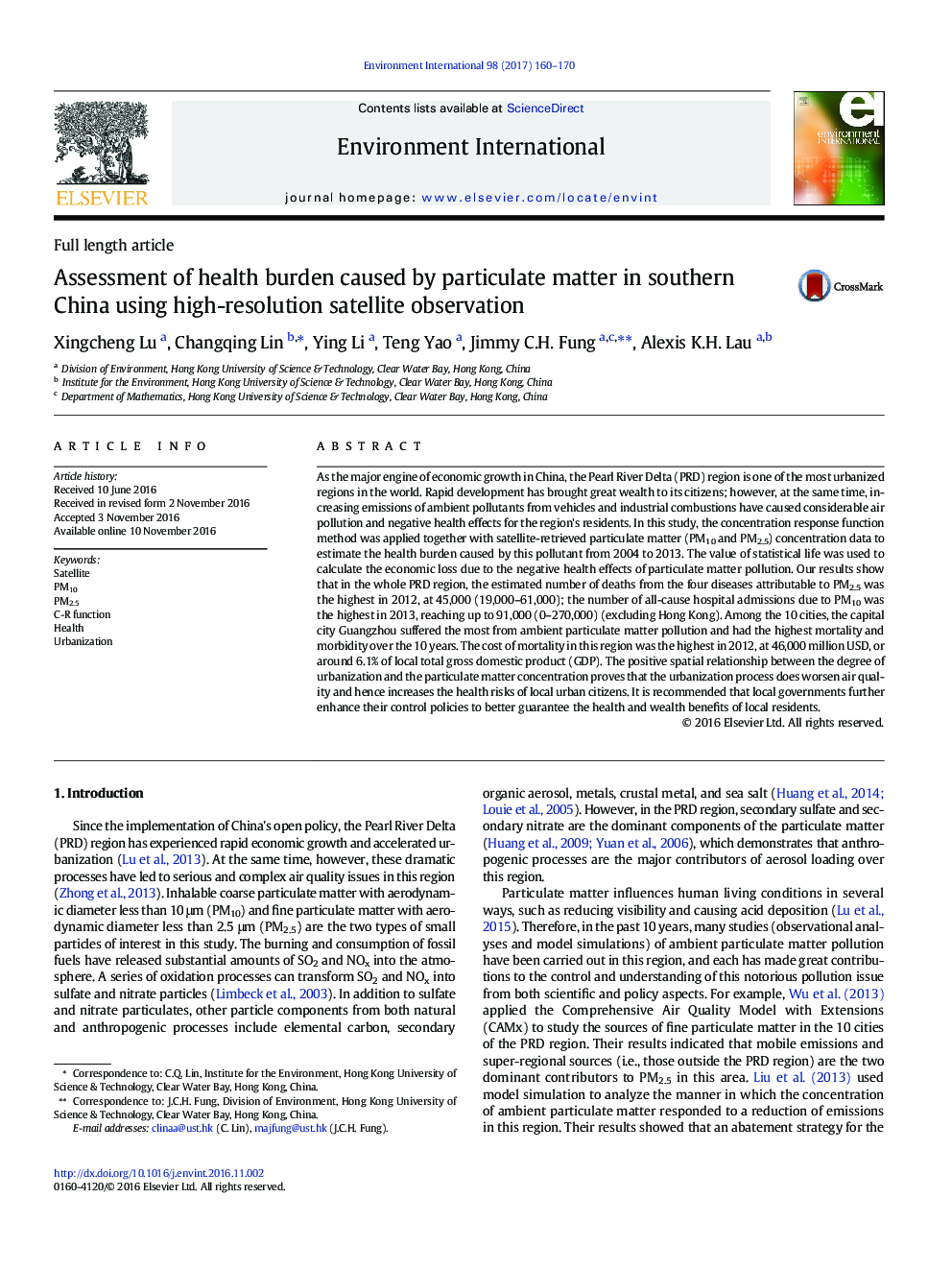| Article ID | Journal | Published Year | Pages | File Type |
|---|---|---|---|---|
| 5748468 | Environment International | 2017 | 11 Pages |
â¢Health effects were first estimated from 1-km satellite PM data in southern China.â¢Adverse health effects caused by PM were most common at the center of this region.â¢Health cost of PM reached 46,000 million USD (6.1% of GDP) during 2012.â¢Health risks caused by PM were positively associated with the urbanization process.
As the major engine of economic growth in China, the Pearl River Delta (PRD) region is one of the most urbanized regions in the world. Rapid development has brought great wealth to its citizens; however, at the same time, increasing emissions of ambient pollutants from vehicles and industrial combustions have caused considerable air pollution and negative health effects for the region's residents. In this study, the concentration response function method was applied together with satellite-retrieved particulate matter (PM10 and PM2.5) concentration data to estimate the health burden caused by this pollutant from 2004 to 2013. The value of statistical life was used to calculate the economic loss due to the negative health effects of particulate matter pollution. Our results show that in the whole PRD region, the estimated number of deaths from the four diseases attributable to PM2.5 was the highest in 2012, at 45,000 (19,000-61,000); the number of all-cause hospital admissions due to PM10 was the highest in 2013, reaching up to 91,000 (0-270,000) (excluding Hong Kong). Among the 10 cities, the capital city Guangzhou suffered the most from ambient particulate matter pollution and had the highest mortality and morbidity over the 10Â years. The cost of mortality in this region was the highest in 2012, at 46,000 million USD, or around 6.1% of local total gross domestic product (GDP). The positive spatial relationship between the degree of urbanization and the particulate matter concentration proves that the urbanization process does worsen air quality and hence increases the health risks of local urban citizens. It is recommended that local governments further enhance their control policies to better guarantee the health and wealth benefits of local residents.
